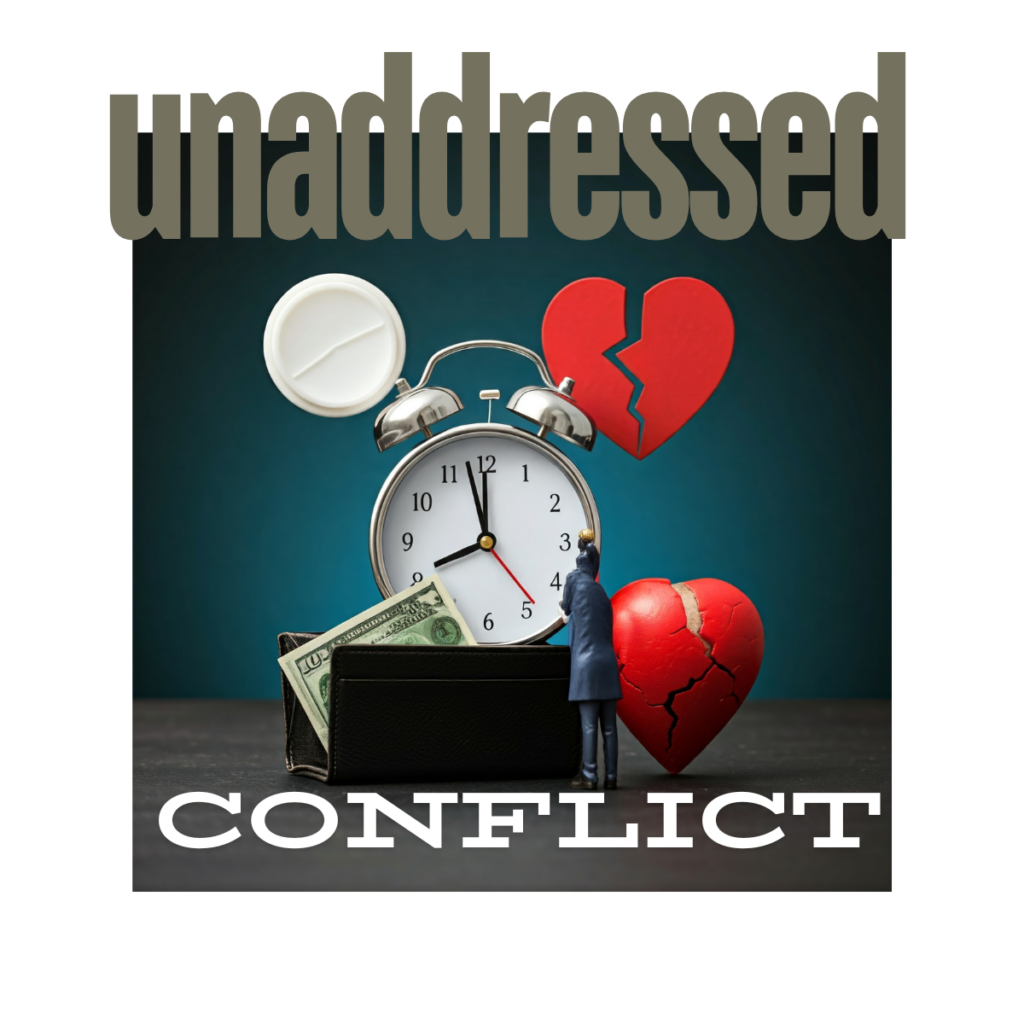
From Dollars to Heartache: Why Letting Conflict Linger Comes at a Steep Price
Conflict is a part of life, whether it’s a disagreement with a neighbor, a dispute at work, or tension within a family. If you’re anything like most people, you are tempted to ignore conflicts, hoping they’ll resolve on their own or fade away with time.
“I love confrontation,” says Nobody.
However, letting conflicts linger can have hidden costs, both tangible and intangible. These costs build up over time and can impact relationships, finances, and physical health.
Where Conflict Meets the Bottom Line
While letting conflict sit for a bit can lower temperatures, making them more manageable, conflicts that are left unaddressed require more time, energy, and sometimes money to resolve. For example, a minor dispute between business partners might start with a simple miscommunication. Left unattended, it can evolve into something more serious, potentially requiring costly legal intervention. The longer the issue festers, the more expensive it becomes to untangle, as parties may become entrenched in their positions, making resolution far more complicated.
Unresolved conflicts can result in job dissatisfaction or even job loss, leading to lost income for individuals. In a workplace context, unresolved disputes can decrease productivity and morale, which costs both the individual and the organization. Addressing issues immediately and consistently can save time and significant financial resources.
Let Me Introduce you to Unresolved Conflict, the Relationship Buster
Conflict avoidance might seem like a way to keep the peace, but it often has the opposite effect. When conflicts are allowed to linger, they can quietly (or not so quietly) chip away at the foundation of relationships. In personal relationships, unspoken grievances can fester, leading to passive-aggressive behavior, resentment, and, eventually, a complete breakdown in communication.
Unresolved conflicts between colleagues in workplace settings can erode trust, making it difficult for teams to work together effectively. The lingering tension becomes a barrier to collaboration, ultimately impacting productivity and morale. Addressing conflicts as they arise allows relationships to grow from a place of honesty and mutual respect rather than one overshadowed by unresolved issues.
What’s That? The Stress Giving You Heartburn?
The connection between stress and physical health is well-documented. Unresolved conflicts can contribute to chronic stress, which is linked to various health problems, including heart disease, high blood pressure, and weakened immune function. Over time, the physical toll of holding onto conflict becomes apparent, often manifesting as fatigue, headaches, or other stress-related symptoms.
Resolving conflicts helps alleviate this stress, reducing the physical burden on the body.
I See the Light!
While it can be uncomfortable to address conflicts directly, doing so often prevents these hidden costs from accumulating. Faced with a problem head-on, confronting it head-on allows you to resolve the conflict before it becomes more significant and unmanageable. It also fosters open communication and proactive problem-solving, which can improve all areas of life.
Conflict resolution doesn’t have to be lengthy or painful. On the contrary, it strengthens relationships. By engaging with a conflict resolution professional early on, you can navigate disputes constructively, preventing unnecessary costs to your finances, relationships, and health.
I’d love to help. Contact me for more information.
